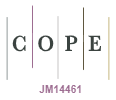Intersectionality in affirmative action policies as ademocratization measure of higher education
DOI:
https://doi.org/10.5585/eccos.n45.7959Keywords:
Quotas. Higher Education. Lesbians and Bisexuals. Black Women. Affirmative Action Policies.Abstract
In focusing on the processes of democratization of Higher Education, the intersectionality of social categories – such as race, class, gender and sexual orientation – is a powerful way to perceive student needs and formulate interventions in the decisive factors of academic trajectories, especially in dealing with access, permanence and academic performance. In considering intersectionality and approaching authors, both current and classic, such as Luiza Bairros, Audre Lorde, Heleieth Saffioti and Kimberlé Crenshaw, the objective of this article is, from research data, to analyze factors that interfere in the permanence of lesbian quotartes black women and bisexual quotaters black women as well as reflect on the confrontation with the violence that affects them physically, materially and psychologically towards access to material and symbolic goods in the University and in other social spheres. The qualitative methodology was adopted, in order to add quantitative data, bibliographical and documentary research.Downloads
Download data is not yet available.
Downloads
Published
2018-01-08
How to Cite
AUAD, Daniela; CORDEIRO, Ana Luisa Alves. Intersectionality in affirmative action policies as ademocratization measure of higher education. EccoS – Revista Científica, [S. l.], n. 45, p. 191–207, 2018. DOI: 10.5585/eccos.n45.7959. Disponível em: https://periodicos.uninove.br/eccos/article/view/7959. Acesso em: 26 sep. 2024.
Issue
Section
Artigos






